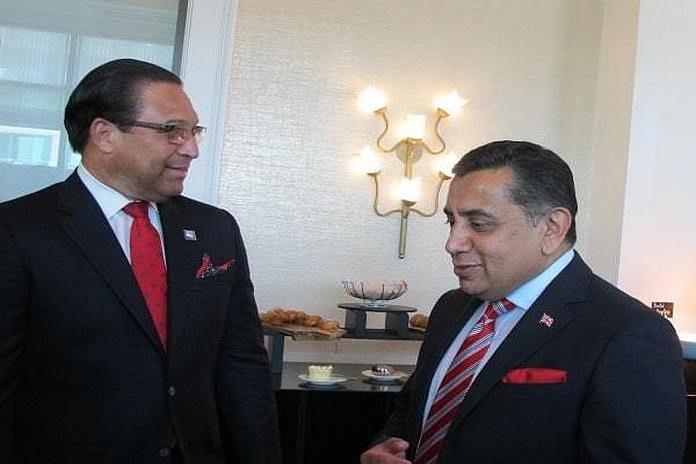GEORGE TOWN, Cayman Islands (CNS) – The UK minister responsible for the British Overseas Territories (BOT), Lord Ahmad of Wimbledon, has issued a statement [trying] to reassure the BOTs that Britain’s departure from the European Union (EU), on Friday, January 31, 2020, will not impact their residents over the next eleven months.
Lord Ahmad said it was a priority for him and the UK government to work closely with “territory leaders to identify the opportunities and concerns” over Brexit.
Residents of the territories who are studying, working, living or travelling in the European Union, or planning to do so in the future, will be affected in the same way as residents of the UK. However, economic and environmental consequences for the BOTs will be different than for Britain.
Some territories are dependent on aid from the EU, research support or markets, but these issues are a long way from being resolved. Regardless of the minister’s attempts to reassure the BOTs that the “new dynamics in the United Kingdom’s parliament and the decisive action of the prime minister to press ahead with Brexit” will not have an adverse impact, the fact is that no one really knows.
The one certainty is that by midnight Greenwich meantime, the UK will formally leave the EU, but there is less certainty over how the British economy will be impacted by that over the next year, as the government attempts to negotiate a new trade deal with the Europeans.
Lord Ahmad said the ‘Withdrawal Agreement’ provides for an implementation period lasting until December 31, 2020, providing a period of transition before Brexit-related changes take place.
“We want to take this opportunity to set out what this means for people and businesses in the British Overseas Territories,” he said in a statement. “During the implementation period, your rights and those of your family members will not change, and neither will the relationship British Overseas Territories companies and NGOs have with the EU,” he added.
Eligibility for British passports will not be affected, he said, and the rules on travelling to the EU will remain the same throughout the implementation period. British Citizen passport holders will be able to continue to live, work and study in the EU. The 90-day visa-free access to the Schengen area for 180 days will also not change yet.
He said the UK government had agreed to cover EU-funded projects in the British Overseas Territories if the payments cease but under the deal, the British Overseas Territories funding will continue.
“I want to both assure you and to leave you in no doubt that the United Kingdom is absolutely committed to the safety and prosperity of each of our British Overseas Territories. Brexit is no exception to this,” the UK minister stated.
“As we head into the next phase of the negotiations and take up the opportunities afforded by our departure from the EU, including the ability to negotiate our own trade agreements around the world, the continuing priority for the United Kingdom Government is to ensure that the voices of our OTs are heard. And that your priorities inform our approach to the negotiations every step of the way,” he claimed.
Republished with permission of Cayman News Service





